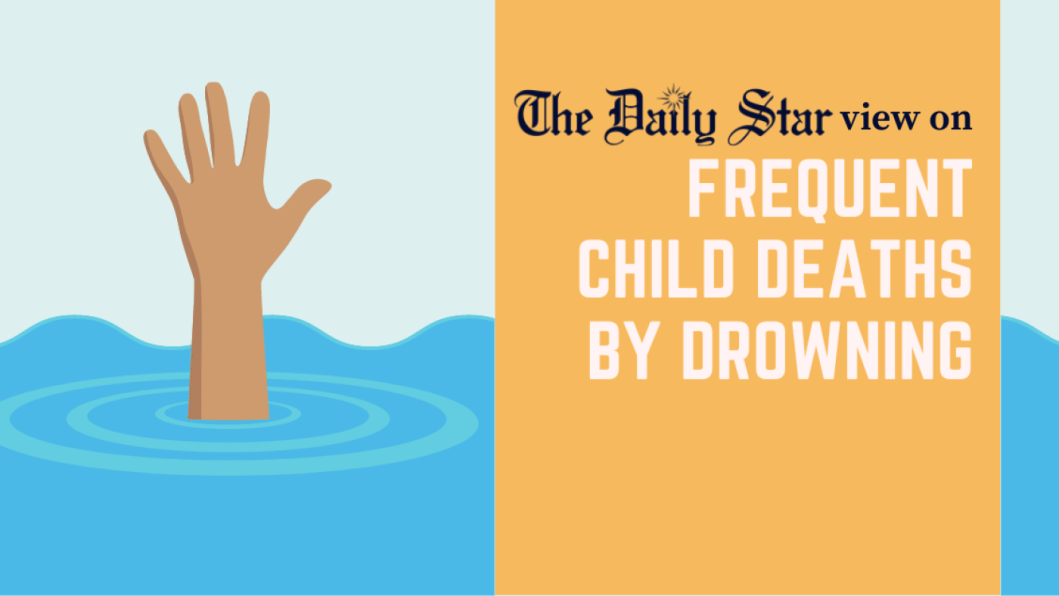A matter of life and death

It is heart-breaking to note that as many as 38 children die every day in Bangladesh due to drowning. According to the World Health Organization and Unicef Bangladesh, that brings the total to around 14,000 deaths among children every year, making it the second leading cause of child (under five) mortality in the country. Unfortunately, Bangladesh has one of the highest rates of under-five drowning in the world. Despite these alarming statistics, the fact that we as a nation have failed to do anything about it over the years is extremely disappointing.
Globally, drowning claims the lives of over 2,30,000 people every year. In order to bring global attention to it, the UN declared second World Drowning Prevention Day was observed on July 25, 2022. The majority of deaths by drowning, however, occur in low- and middle-income countries. In a country like Bangladesh, where large areas of land remain submerged due to yearly floods, the absence of awareness among people as well as lack of swimming skills can prove to be lethal, especially since children in rural areas living near water bodies are exposed daily to the risk of drowning.
According to a report earlier in the year by the Society for Media and Suitable Human-communication Techniques (SoMaSHTe), 80 percent of the under-five victims drowned within 20 metres from their homes. What is deeply concerning is that people are also still largely unaware to this threat due to inadequate reporting of such incidents in the media and elsewhere.
Given that death by drowning is preventable through low-cost solutions, according to the WHO and Unicef, there really is no excuse for us to continue ignoring this issue and not implementing these solutions. The government, in partnership with other organisations – like the media, NGOs, and others – needs to urgently increase awareness about it among families and communities. Providing swimming skills among children and adolescents would also go a long way in preventing such unnecessary deaths. Since a lack of supervision of children while their guardians are busy with other work is what often leads to such tragic deaths, ensuring childcare facilities for pre-school children can make a significant difference.
Reportedly, the Ministry of Women and Children Affairs has developed a detailed, pro-forma project, which will enable institutional supervision of children under five through 8,000 community-based day care centres. This project should urgently be fast-tracked, as it literally concerns a matter of life and death, particularly for children.

 For all latest news, follow The Daily Star's Google News channel.
For all latest news, follow The Daily Star's Google News channel. 





Comments